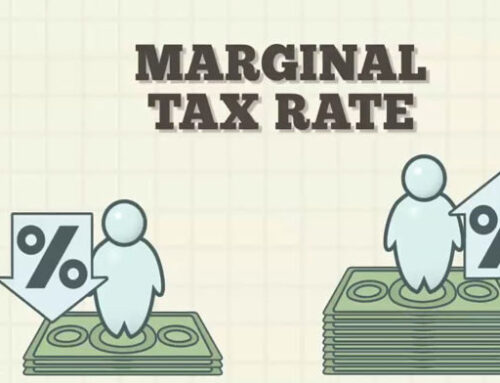Preparing for tax season preparation time can be a challenge for anyone, but it can be especially challenging for those who are self-employed. To avoid late fees or missed deductions, it’s best to work with a professional accountant in the months leading up to tax season. Waiting until the last minute is not recommended, as it can result in unnecessary headaches and expenses. Taking the time to properly prepare and organize your financial information with the help of an accountant can save you time and money in the long run.

A streamlined approach to organizing your business finances
Many people make the mistake of jumping right into their business without proper organization and structure. This can lead to a lot of unnecessary stress and confusion come tax season preparation time. To avoid this, it’s important to start by connecting with a qualified accountant who can direct you to the required forms for self-employed business income, such as the T2125, Statement of Business, or Professional Activities.
However, to provide your accountant with the most accurate information possible, you need to have a better understanding of your actual business. This includes tracking expenses, deciding whether to register for a GST or HST account, and seeking assistance with registration if needed. By taking a more streamlined approach to organizing your business finances, you can save time, reduce stress, and maximize your tax deductions for Tax Preparation in Chatham.
Managing Tax Season Preparation for the Self-Employed
Managing taxes can be challenging for those who are self-employed. Here are some tips to help with tax season preparation payments:
Setting aside money for tax payment
Transitioning from being a salaried employee to self-employed can be overwhelming, and saving for quarterly tax payments can be overlooked. After the first year, if you owe more than $3,000 in income tax season preparation, the CRA requires you to make quarterly installments, which can create cash-flow challenges.
It is important to set aside money collected from clients for GST/HST payments since it has to be paid to the CRA. Accountants can help prepare a budget and ensure enough is set aside to avoid cash-flow challenges. By knowing what you owe and budgeting accordingly, you can avoid difficulties.
It is crucial to file tax returns on time and make tax season preparation payments promptly to prevent interest and penalties from accruing.
Also read: The Value of Assurance: Building Trust in an Uncertain World

Ensuring Proper Business Registration and Tax Compliance
Obtaining a GST or HST Account
Determining whether you need to register for GST or HST can be a challenge for self-employed individuals. While a business number is not always necessary to start, once an annual income of $30,000 is reached, a GST or HST account is required by law.
However, many self-employed individuals make the mistake of not registering, missing out on the opportunity to recover input tax credits. This can lead to the HST paid on expenses becoming a mere cost instead of a potentially recoverable item.
To avoid this, seeking advice from an accountant who can review the business and determine whether registering for a business number and GST/HST is necessary is recommended. Additionally, an accountant can assist with setting up the necessary accounts and ensuring proper tax season preparation compliance.
Also read: Deadline for Corporate Tax Filing for ODSP in 2023
Efficiently tracking expenditures
Maintaining an accurate record of expenditures can be a challenging task for most individuals.
The essential factor is ensuring that all transactions, invoices, and receipts are adequately documented on the bank statement or credit card.
Cultivating this habit will simplify tax season preparation and eliminate the strenuous process of trying to recover every business purchase made throughout the year.
Furthermore, keeping business expenses distinct from personal finances is crucial to streamline records. A separate bank account for the business and one designated credit card can be used. If the CRA conducts an audit, they will only inspect that bank account and credit card statements.

Understanding and Maximizing Claimable Expenses
In addition to tracking expenses, knowing which expenses are eligible for tax deductions is crucial for businesses. A CPA can help convert personal expenses, such as home office and vehicle expenses, into business expenses to maximize the amount that can be claimed. This can be recorded in an Excel spreadsheet or through software such as Quicken Home and Business, depending on personal preference.
It is important to keep track of all expenses and distinguish between business and personal spending. Entertainment fees have strict limitations, with only 50% being deductible. To claim these expenses, it is necessary to write down who was present and other relevant details on the receipt, as the CRA does not accept credit card statements as proof.
By staying organized and aware of claimable expenses, businesses can maximize their tax season preparation deductions and reduce their tax burden.
Also read: Allowing Small Business Accountant to Escape Taxes
In conclusion
The benefits of seeking guidance from a CPA long before tax season outweigh the costs, and even spending just an hour with them can pay dividends. Tax season preparation will help you understand what to expect, how much to set aside for taxes when they are due, and what to keep an eye on.
To receive tailored tax advice, it is recommended to hire a Professional Tax Accountant. While this article provides a general overview of tax rules, a qualified accountant can provide personalized guidance to help you maximize your deductions and minimize your tax liabilities.
Recent Posts
FAQ
Is it worth seeking guidance from a CPA before tax season?
Yes, the benefits of seeking guidance from a CPA long before tax season outweigh the costs. Even spending just an hour with them can pay dividends. This will help you understand what to expect, how much to set aside for taxes when they are due, and what to keep an eye on.



